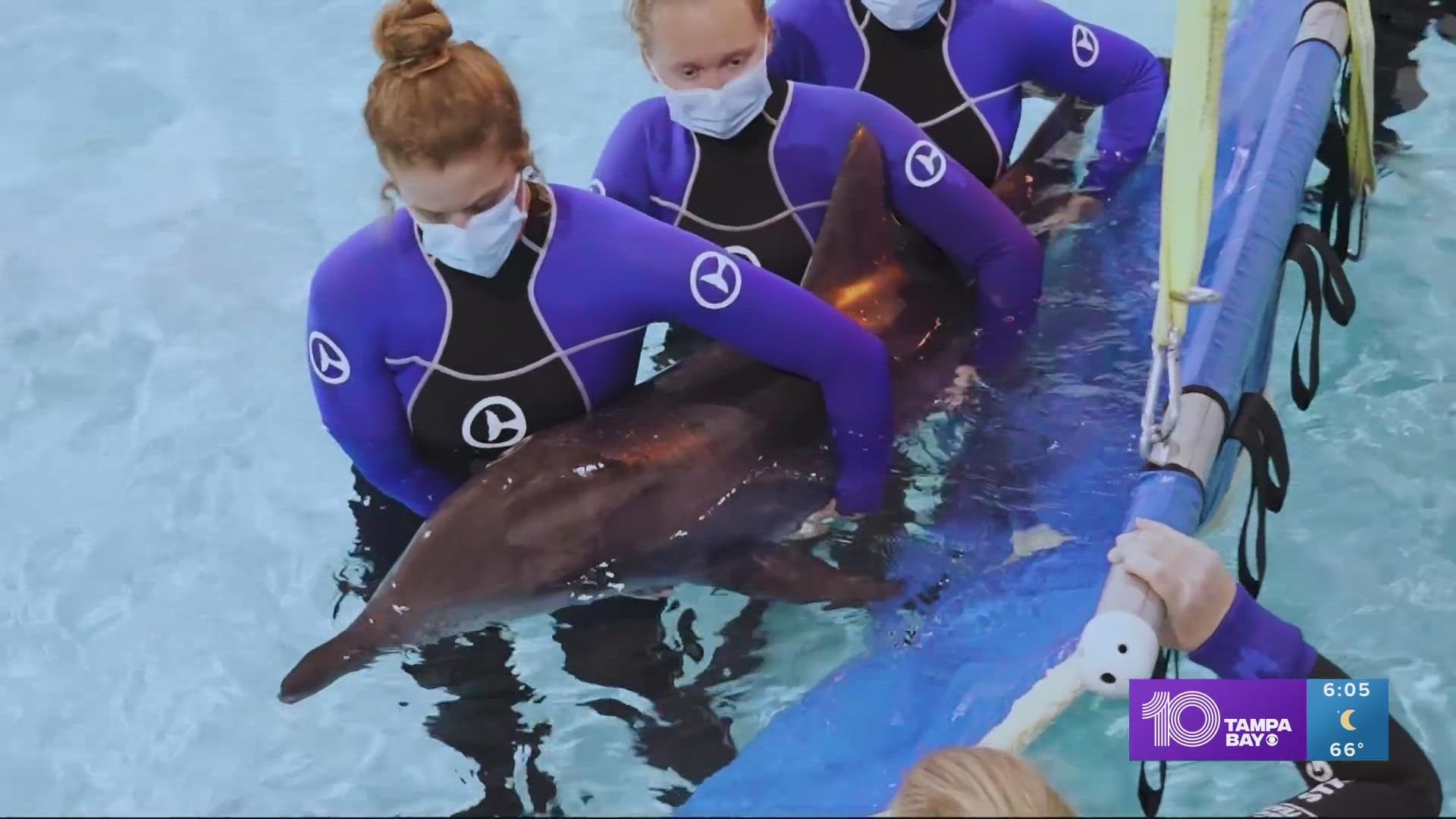CLEARWATER, Fla. — A dolphin rescued over the weekend is recovering and receiving rehabilitation at Clearwater Marine Aquarium.
At around 6 p.m. on Friday, Feb. 10, MOTE Marine Laboratory & Aquarium responded to a young, female rough-toothed dolphin stranded near Longboat Key and reported it to CMA. MOTE assessed the dolphin's health and transported her to CMA for rehab at its Fred Howard Park location, CMA said in a news release.
"The dolphin remains in critical condition but is stable and swimming, which is a hopeful sign," Veterinarian Dr. Shelly Marquardt with Clearwater Marine Aquarium said in a statement. "We are running full health assessments and continue to monitor the dolphin’s condition. Our goal is to determine the cause of her stranding and provide the care she needs for rehabilitation."
This is the first dolphin to undergo rehabilitation at CMA's Fred Howard Park rehab facility since 2020 when Rudolph was transported and rehabilitated there — a rough-toothed dolphin who became a resident.
The rescued rough-toothed dolphin weighs 156 pounds and is just under 6.5 feet, CMA says. The species can get up to 350 pounds and 8.5 feet long, according to NOAA Fisheries. They also have a lifespan of about 36 years.
The vet staff at CMA is working to learn more about what caused the dolphin to become stranded. They received reports that beachgoers were attempting to push the dolphin back to the water before trained professionals arrived in the area, CMA said.
"This life-saving work is at the core of our mission as a working marine animal hospital," CEO Joe Handy said in a statement. "Our team of experts will provide round-the-clock care. We are steadfast in our efforts to rehabilitate and release this dolphin back to Florida waters."
Rough-toothed dolphins are known to roam the waters in tight-knit groups of 10 to 20 individuals, CMA says. There have been reports of groups of up to 100.
CMA wants to remind beachgoers and those who might run into animals in distress.
"It's important to remember not to intervene, and call trained responders at (877) WHALE-HELP," CMA said in a news release.

